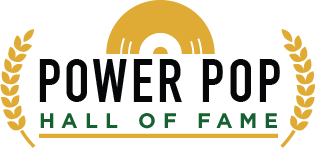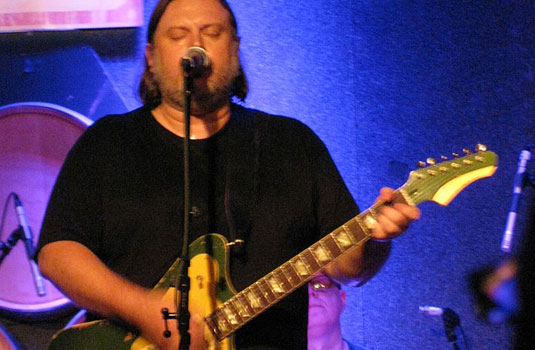Matthew Sweet
What makes Matthew Sweet?
Maybe it’s the riffs, brand new yet instantly familiar, like the best moments of your record collection purified and concentrated. Maybe it’s the verses, singable but never singsong, rough like rock and roll but gauzy like pop. Maybe it’s the lyrics –sensitive, frisky, lonely, wry, vulnerable, cynical, hopeful.
But it’s the melodies, married as they are to an unabashed love of guitars and Brian Wilson and cheap beer and Jeff Lynne and Marshall stacks and Chris Bell and anime and Neil Young, that emphasize the full emotional range of Matthew’s songs. They add menace to lines like “I don’t like knowing people,” they underscore the regret of “You’re not sorry –why should you be?,” and they reveal a sort of magnificent loneliness beneath “I’m just like you; I don’t wanna be alone.” And they give all of those glorious riffs more room to rock.
Maybe it’s the unexpected, angular art-punk solos of Robert Quine and Richard Lloyd and Ivan Julian. Maybe it’s the production: the wall of sound of In Reverse or the new wave synth accents of Blue Sky On Mars or the fuzz pedal bliss of 100% Fun or the snarling immediacy Altered Beast. More even than the still-fresh-after-all-these-years guitar charms of Girlfriend.
But it’s the harmonies –those mammoth blocks of harmonies, layer upon layer of Sweet vocals that boost those records from ‘excellent’ to ‘transcendent.’ The chorus of “Girlfriend” (or “Evangeline” or “Super Baby” “Hollow” or “Tonight We Ride” or “Sunlight” or any one of 100 others) erupts from the speakers, surfing a tidal wave of harmonies, perfectly blended because they’re all sung by the same voice.
Maybe it’s the longevity: First, the string of perfect records released throughout the 90s every two years without fail, like a glorious heartbeat. Then the later albums that, with a wink to the audience, pushed at the edges of pop melodicism and song
structure. Then the side projects that found beauty and simplicity in the voices of friends and the tunes of his youth. The 30 years of records, soundtracks, demos, B-sides that suggest the man will never run out of hooks.
But it’s the harmonies and melodies that make us pull over to lower the top on the convertible. They make us windmill our air guitars and sing into hairbrushes. They make us kiss and be kissed. They make us close our eyes and tilt our faces to the sun. They make us fall in love, over and over again, with the Sweet strain of power pop.
Craig Dorfman
Craig Dorfman is the author of Brighter Day: A Jellyfish Story
www.lousydrummer.com





